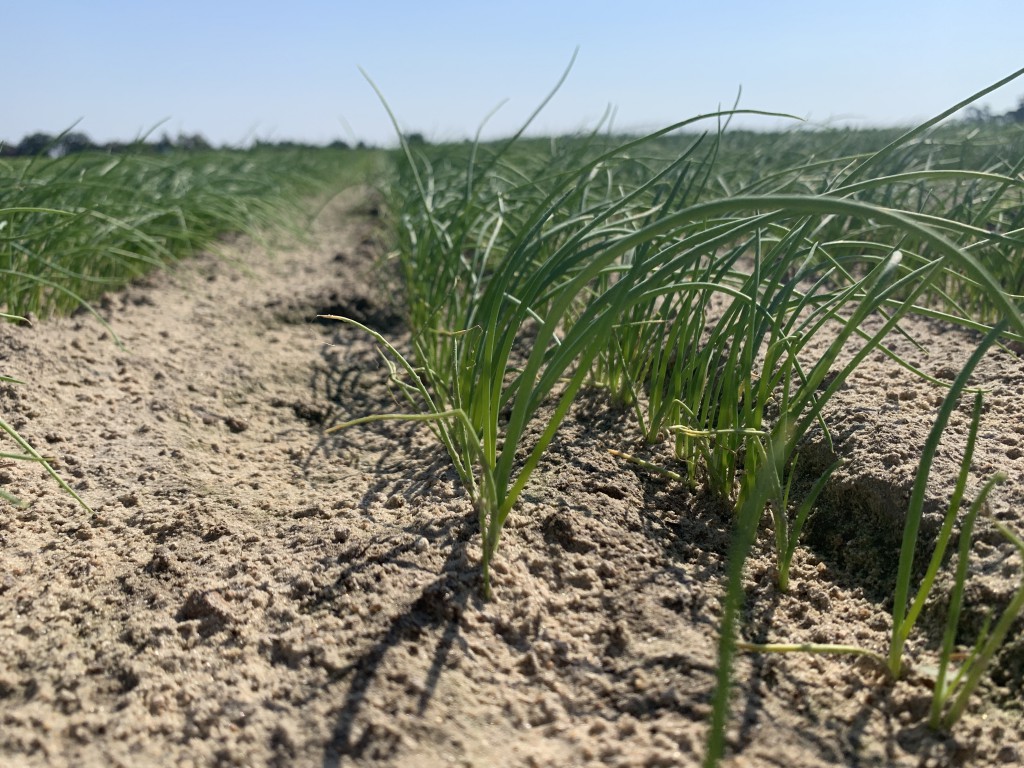
Organic onion production in Georgia is nothing new. But the data is lacking for farmers who are trying to expand and be more efficient in their operations.
That is why Tim Coolong, associate professor in the UGA College of Agricultural and Environmental Sciences, is studying organic onion production.
“Onions have been grown conventionally for decades. That system, I feel like we’ve got it down pretty well, although, we still have issues,” Coolong said.
“Organic onions have also been grown for a little while, but the body of knowledge is so much less. Growers are constantly trying new things. As researchers, we’re trying new things. Sometimes they work, sometimes they don’t. But it’s just trying to build that body of knowledge to draw upon.”
Fertilizer Applications
That knowledge consists of fertilizer applications, which are essential in the development of onions throughout the growing season. Growers who utilize organic fertilizer sources, typically use poultry-litter based. But farmers must apply high levels of organic fertilizer prior to planting to ensure onions have adequate fertilizer levels when they start putting on growth in mid-winter.
Unlike conventional soluble fertilizers, many organic sources continue a slow and steady release of nitrogen throughout the growing season, even later in the year when growers often try to reduce available nitrogen prior to harvest.
“We’re looking at standard poultry litter, which is used a lot less now than it used to be. Then we’re going to be looking at other organic fertilizers that, based on information from folks up here, they found that they have very different release rates,” Coolong said. “With the conventional fertilizer, if you put it out, it’s there. It’s readily available. But with some of these organics, they may take several weeks to release, they may take longer. What we’re hoping to do is evaluate some of these so that our onion growers can be able to time their fertilizer applications better.”
Unfortunately, higher nitrogen levels near harvest may predispose some onions to bacterial diseases if the weather is warm, which is not uncommon in southeast Georgia.
“We’ve done some preliminary work, so we’ve got a little bit of data. We’re hoping to really dial it in this year,” Coolong said.









